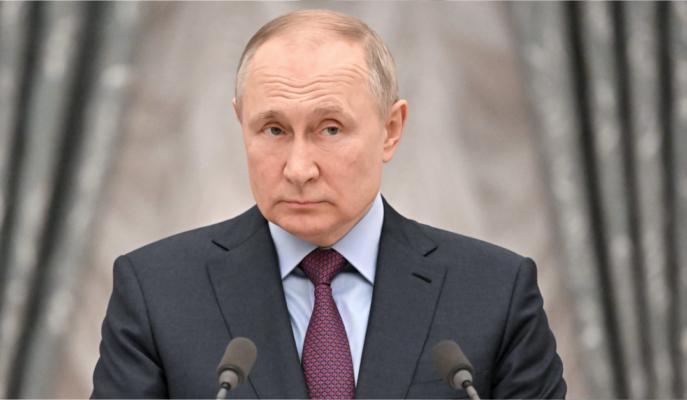ROLLCALL
President Joe Biden on Tuesday used his final UN General Assembly address as the American commander in chief to defend the chaotic military withdrawal from Afghanistan he ordered and to urge world leaders to resist the forces of isolationism.
Just over two months after ending his bid for a second term, Biden appeared to allude to former President Donald Trump and other world figures who echo the Republican presidential nominee’s skepticism of international entities and cooperation among countries. But he also spoke of a Middle East that does not reflect the realities of conflict in Gaza, northern Israel and Lebanon.
“There will always be forces [that try] to pull our countries apart and the world apart through aggression, extremism, chaos and cynicism,” Biden said from the well of the General Assembly hall at UN headquarters in New York. He warned of figures that operate from a “desire to retreat from the world and go it alone.”
“Our task, our test, is to make sure that the forces holding us together are stronger than those that are pulling us apart, that the principles of partnership that we came here each year to uphold can withstand the challenges, that the center holds once again, my fellow leaders,” Biden added. “I truly believe we’re at another inflection point in world history but the choices we make today will determine our future for decades to come.”
The “inflection point” he warned about has been a central theme of his presidency, which began with several speeches casting the historical period as a tug-of-war between democratic governments and authoritarian forces. Biden cast his decision in late July to drop out of the presidential race as part of that same push.
“One thing must not change. We must never forget who we’re here to represent, ‘we the people.’ These are the first words of our Constitution, the very idea of America. They inspired the opening words of the UN Charter. I made the preservation of democracy a central cause of my presidency,” Biden said. “This summer, I faced a decision whether to seek a second term as president. It was a difficult decision.
“I decided, after 50 years of public service, it’s time for a new generation of leadership to take my nation forward,” Biden said. “My fellow leaders, let us never forget, some things are more important than staying in power. It’s your people.”
The American election hung over the speech, with Trump’s campaign issuing a statement shortly after Biden concluded to contend Biden was “desperately attempting to depart with a shred of dignity,” and added a reference to Vice President Kamala Harris, the Democratic nominee: “But the world has seen the devastation wrought by four years of Harris-Biden — and nothing can mask it.”
The outgoing U.S. president devoted parts of his address to looking backward and forward.
On the former, he defended his decision to remove all American military troops from Afghanistan, an operation that included the Abbey Gate terrorist attack that claimed 13 U.S. troops’ lives, wounded nearly 50 more and left 170 Afghans dead.
Biden called the decision, without noting it was based on a Trump-set deadline and blueprint, a “hard decision.”
“But it was the right decision. Four American presidents had faced that decision, but I was determined not to leave it to the fifth,” he added, expressing his respect for all the U.S. and allied forces who lost their lives during what became America’s longest armed conflict.
As Biden looked ahead, he acknowledged Israel’s conflict in Lebanon with Hezbollah “has escalated,” something senior aides in recent days had been reluctant to say publicly. Still, the president who often reminds audiences of his optimism declared “full scale war is not in anyone’s interest” — even as the death toll in Lebanon from Israeli strikes reportedly surpassed 500 people on Tuesday.
Biden, who will meet Thursday with Ukrainian President Volodymyr Zelenskyy in Washington, repeated his calls for unity and increased aid to help the Eastern European country avoid being “destroyed” by Russia.
AI: ‘Profound risks’
But perhaps his most-surprising warnings were about artificial intelligence.
“We also have a responsibility to prepare our citizens for the future. We’ll see more technological change, I argue, in the next two to 10 years [than] we have in the last 50 years. Artificial intelligence is going to change our ways of life, our ways of work and our ways of war,” he said, warning of “profound risks, from deep fakes to disinformation to novel pathogens to bioweapons.”
“But let’s be honest, it’s just the tip of the iceberg. … Nothing is certain about how AI will evolve or how it will be deployed. No one knows all the answers,” Biden said, leaving world leaders with two questions he said they must answer. “First, how do we as an international community govern AI as countries and companies race to uncertain frontiers?
“We need an equally urgent effort to ensure AI safety, security and trustworthiness. As AI grows more powerful, it … must grow more responsive to our collective needs and values,” he added. “Second, we ensure that AI supports rather than undermines the core principles that human life has value and all humans deserve dignity. We must make certain that the awesome capabilities of AI will be used to uplift and empower everyday people, not to give dictators more powerful shackles on … the human spirit in the years ahead.”
Biden addressed the assembly for the final time as president as Trump and Republicans have used the wars in Ukraine and the Middle East to paint him and Harris as incompetent.


